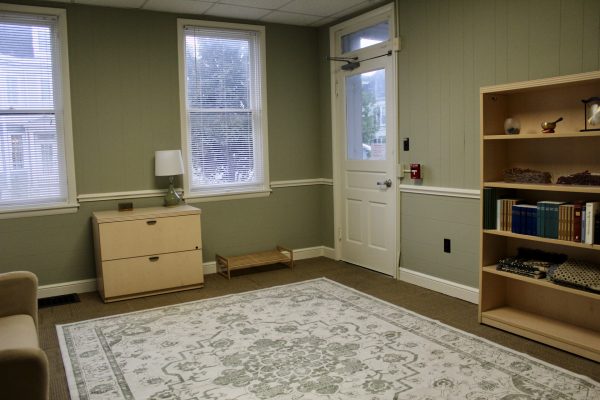Senate Receives Over $90,000 In Budget Requests
Student Senate released budget information for the 2023-2024 academic year to the 54 organizations which requested funding. Clubs requested a total of $92,619.22, and Senate has so far approved $40,057.63 in funding for clubs.
Senate has budgeted for $55,000 for club funding in the 2023-2024 Academic Year. Senate is currently hearing appeals, which will bring the funding total closer to the budgeted amount for clubs funding.
Funding for student organizations is split between four boards: MOB, Student Senate, the Media Board and the Club Sports Council. These four groups meet in roundtable meetings to determine the distribution of funding between the groups. For the 2023-2024 academic year, MOB received $224,050, Senate received $116,500 in general funding and $7,000 in operating funding, Media Board received $33,000 and Sports Club Council received $115,000.
Senate’s general funding increased by $6,500 from last year, while the operating funding decreased by $3,000. General funding goes to club budgets, senior week, study breaks and the salary of the Senate Bookkeeper.
Within that general funding, club budgets were allocated $55,000 dollars for the 2023–2024 academic year. That is an increase of $5,000 dollars from the previous year, but now includes funding for The Dickinsonian, which was a separate item at the budget roundtable last year. The Dickinsonian received $7,500 this year, and has been allocated $7,000 for the upcoming year. This means that despite the increased total, club funding has decreased for the 2023-2024 academic year.
Funding for clubs is decreasing, despite the increased number of clubs and the college’s draft of the Strategic Plan which plans to increase student engagement and belonging on campus.
Other parts of the roundtable funding have fluctuated. MOB’s budget increased by $23,686, and Sports Club Council’s by $14,400. Meanwhile, the Media Board saw an $18,536 decrease in funding, partially caused by the end of the Microcosm and underutilization of funds in previous years, like the square.
Funding for all four groups were taken from the Student Fee, which is part of the price of attendance at Dickinson, and from the college reserves. For the 2023-2024 academic year, $360,000 will come from the Student Activities Fee and $135,550 will come from college reserves in the Sinking Fund. The student fee will be $550 for the next academic year.
Clubs funded through Student Senate submit budget requests to the Budget Committee within Student Senate, which then evaluates the requests and approves or denies the items. The guidelines for this are set out in a document described as “best practices, but not binding rules.” The document outlines the things which Senate does not fund — ranging from websites to drugs — and rules for the dollar amount of funding allowed for other items — like hotel rooms and event advertising.
Beyond these rules, Senate cannot approve the desired funding for all clubs as the pool of available money is smaller than the total requested amount.
It is unclear how the Club Finance Committee within Senate chooses to allocate funding, and Director of Club Finance Ashely Kim did not provide information on that topic. The clubs do have the opportunity to appeal their budgets for increased funding or to apply for discretionary funding up to $1,000 during the year, but neither source is guaranteed.
As a result of lower funding totals available, some clubs received less than they had received the previous year. Arts Collective provided their request and approved budget, which revealed that they requested $5,383.84 but only received $1,810.20. Nate Chaves ’23, President of Arts Collective, said that “this has been a trend from the school for the past three years to cut our funding significantly.”
The Mermaid Players also had a decrease in funding. Olivia Pear ’25, Treasurer of the Mermaid Players said, “to actually operate, the Mermaid Players probably need $4,000, but we only asked for $3,600 and change, and only received $1,800 and change.” Pear also said “this was several hundred dollars less than we received in the year prior.”
Pear also said “this has been a consistent trend in other arts groups that I have spoken with.”
The approved budget for the Mermaid Players included no funding for the club’s most popular event from this year, the murder mystery nights. “It was our most popular event this year, so much so that we had to add murder mystery events to compensate for the interest,” Pear said.
The club requested $300 to buy four packets of “stories” that include the characters people play during the events, with two events planned for each semester, but received no funding. Pear said, “We appealed that specific event, but based on Senate’s reaction, I am not hopeful we will get more.”



